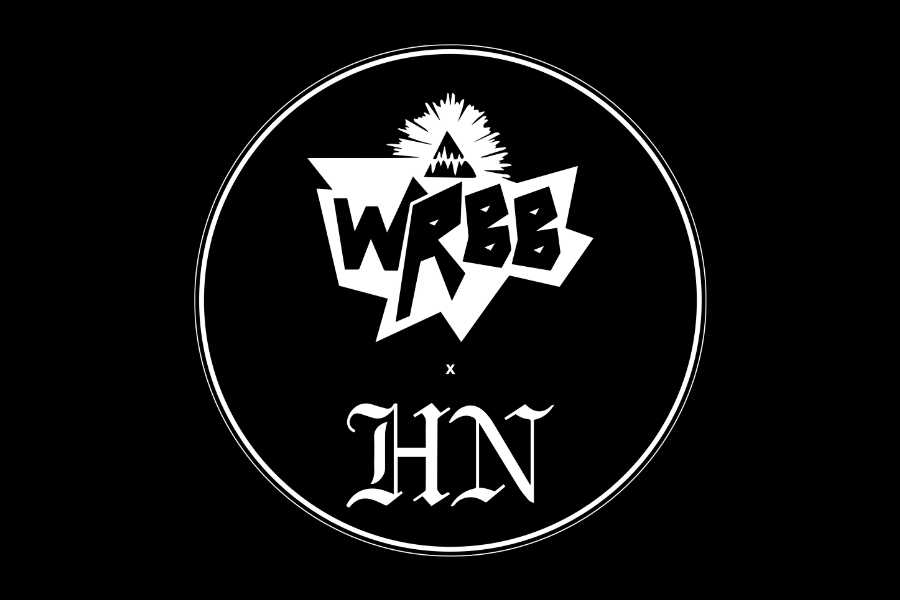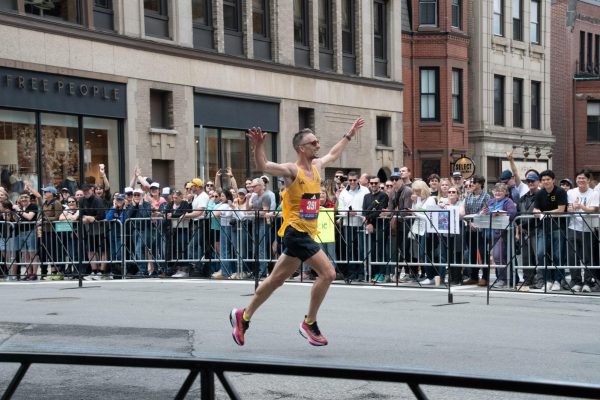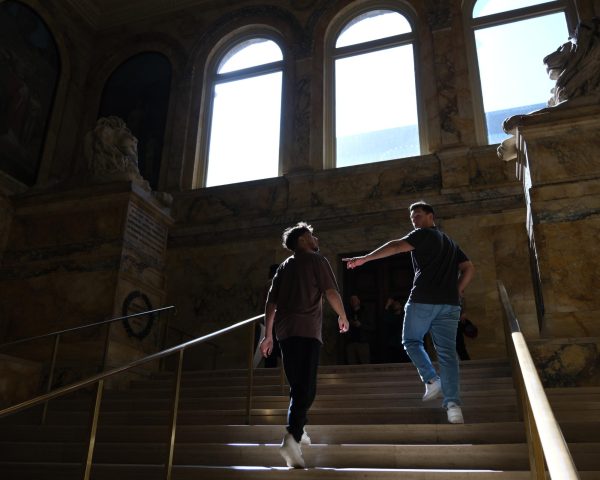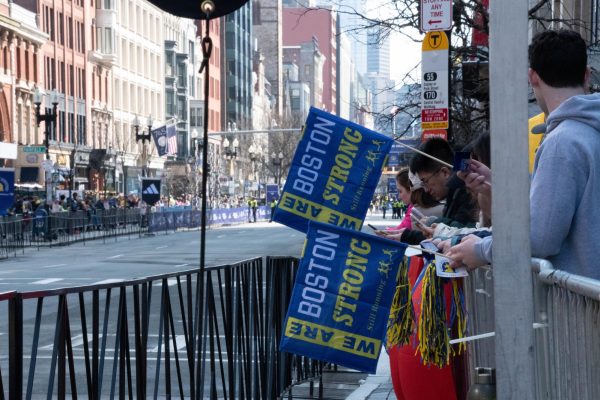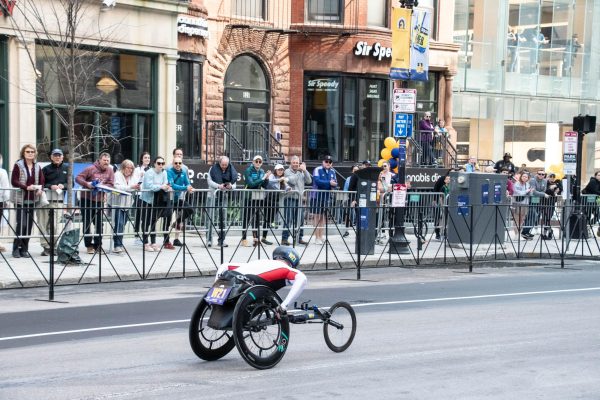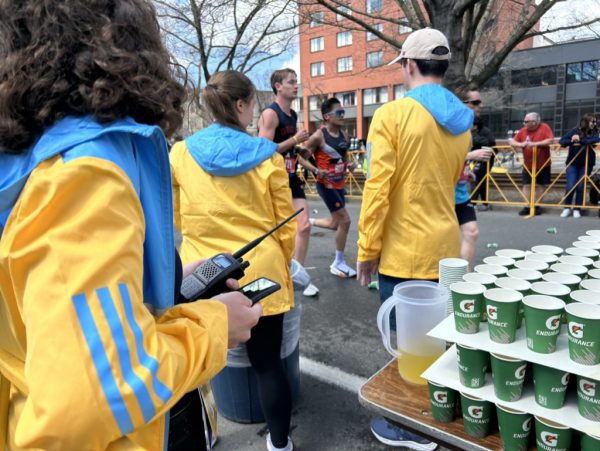Column: America, as described by an Irish Grandmother
September 27, 2017
“Well, Aoife, it’s the only country where you put your cardigan on when you go indoors. They keep the house so chilly, I hear they don’t need fridges!”
We’re slipping over the cusp of evening on an overwashed autumn day; the daylight sinks past the orchard trees and stretches shadows on the oak table. On the table sits a chipped glass of mismatched pens, discarded lottery tickets and glasses of an unknown prescription that unnaturally distort the grain of the wood beneath. In the corner, leaflets for church fundraisers and boiler services and the local politician’s threadbare promises are stacked neatly for neglect, reluctantly retired as household clutter. Observing the scene, on the papered wall, hangs Jesus and his cross, kept company by a faded photo of a gentleman in his best suit, with an intelligent brow nesting tired eyes that stare out at the world and silently observe how it’s changing.
My grandmother is seated on a red chair; a regal throne into which she rarely has the time to recline. She’s wearing a long floral skirt and red cardigan, a darkened black Macintosh and a plastic rain bonnet spotted with droplets. Her stockinged foot is hefted onto her knee, and she’s pulling off wellington boots with considerable force.
“So you’re off to America?”
I’m gazing out of the window; the rain slides right off the reed-thatched roof and so there’s no tell-tale rain pattering, that sound of the hooves of hundreds of shrunken horses galloping on tiles, but it’s splatter painting the grey yard with the uneven paving and the window has trickling borders and the orchards is blurred.
“Yes, Granny, for two years. It’s for university so I’ll be in Boston studying this term, and then out on an internship for a bit.”
“There’s a lot of opportunity there, mind, don’t get me wrong. But it’s a big place and they have some strange ways for sure, some strange ways indeed.”
For her, a country farmer living in a whitewashed stone cottage that’s older than most of Boston itself, America has vastly different connotations than to the rest of the world. It’s the land that her brother took the boat to and only returned from at Christmas, the intermittent period an expansive unknown populated by her imagination and images from magazines, and stories neatly clipped from the newspaper. The months sparsely punctuated by occasional postcards with strange foreign stamps, and hastily scribbled words that made a meagre attempt to sketch out a new life always with too few strokes. He returned each Christmas with sun-darkened skin and a polaroid camera, and would habitually rise before dawn to walk the dew-glazed fields in the weak, suspended reality the rising sun gives the mornings and those that walk alone in them. I suppose it was to soothe his eyes that were tired of attempting to comprehend a foreign land; of processing the saturated colors and the cluttered, metallic sounds, and the heaving collective masses on the swiftly-moving, heavily-peopled streets of New York.
Much has changed in Ireland since the days of mass emigration to America, and much has stayed the same. To the remnants of that older generation, America still means the land of flashy cars and movie stars and the iron-grip possessive holder of brothers and uncles and friends who eagerly left for the land that seemed to build elevators to success, and who soon realized that they were recruited solely for the purpose of these elevator’s construction. In the same way that my grandmother pictures this America of old as a representation of the country, so too do many Americans picture the Ireland of my grandmother’s youth as corresponding to the country today; ragged clothed children crossing rocky fields, hauling clattering silver pails and sloshing raw milk. Numb, stiff fingers picking soil-clad potatoes on frozen October mornings. The lilting, melodic notes of ‘Sean Nos’ singing emanating from warm, darkened pubs with ring-marked tables and aging, red, overstuffed stools under aging, red, overstuffed men, who talk in layers over one another and laugh brashly at their own jokes. This Ireland exists now only in the memories of the arthritic, creaky white-haired women and the stooped, hollowed men that sit in nursing homes or at quaint kitchen tables, who look on in amusement at the iPhone and laptops and flashy sneakers their grandkids bring when they come to visit. Or it determinedly subsists in secluded, remote pockets of the countryside that have proved stubbornly resistant to flooding by the airwaves and airplanes that pour in foreign cultures to dilute our own, these strange waters ever threatening to lap over the edges of the cultural barricades that have fostered these secluded, living preservations of our history.
Although across the Atlantic, Ireland is closer in miles to Boston than California. For my generation, raised on a mixed diet featuring Disney Channel and MTV and Oreos, the cultural gap between our nations has shrunk considerably. The essential nature of the people, however; the well ingrained mannerisms and overarching clauses in our personal constitutions, have proved more resistant to change than our media, diets and material tastes. Our “Irishness” is marked not only by our accents, but by our collective sense of humour, the characteristics that we hold in high regard and our infinitely superior taste in both tea and chocolate.
My Ireland is as different to the general perception as my Grandmother’s America differs to yours. It can be hard to think of a far away country as brimming with everyday activities just like your own; as being a familiar context in which people walk their dogs, go to school and file taxes, or as a viewing point from which people look outwards at the world that they measured from the central perspective of their own nation. Yet this is the case, and although Ireland is still a country of great beauty and rich tradition, the expansive waters of the Atlantic have not been enough to insulate us from the cultural seep that is oozing from all nations.
The sepia photo of my Grandmother’s brother hanging on the wall signifies a journey of a much greater magnitude than mine. Although the physical distance between Ireland and America remains unchanged, and the stretch of water between us is as wide and as deep as ever, I feel close to home. These days, waves of information just travel so much faster. And with these waves spreads culture. My question is, with America’s crashing waves of much greater magnitude than our coastal swells, how resistant will Ireland be to total cultural erosion?


